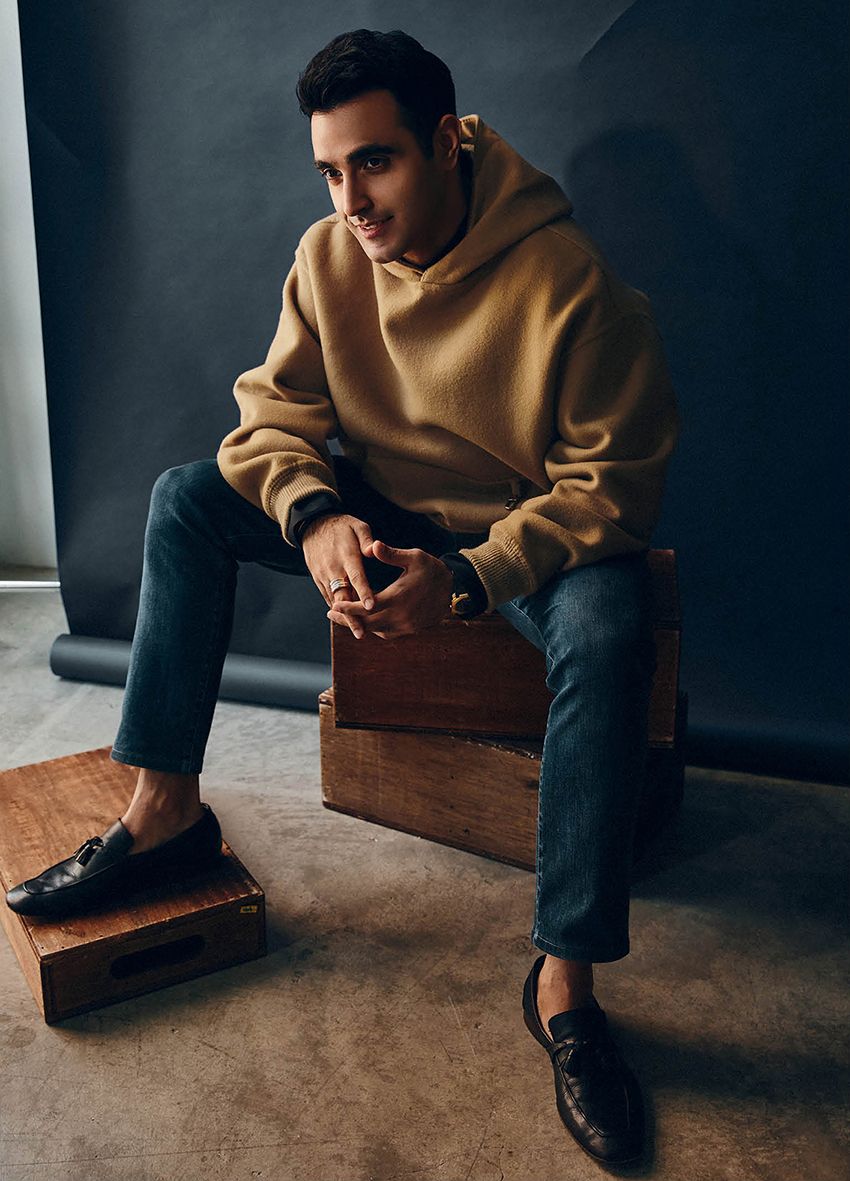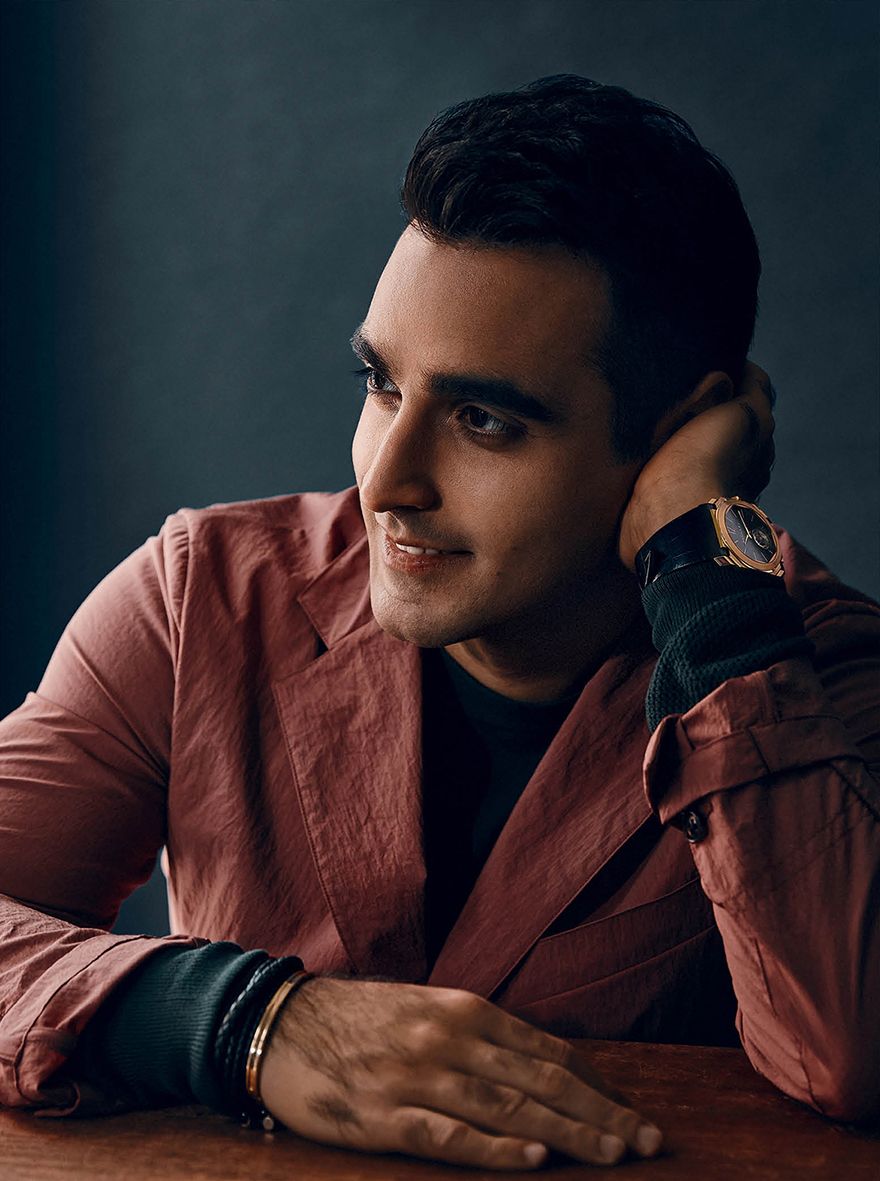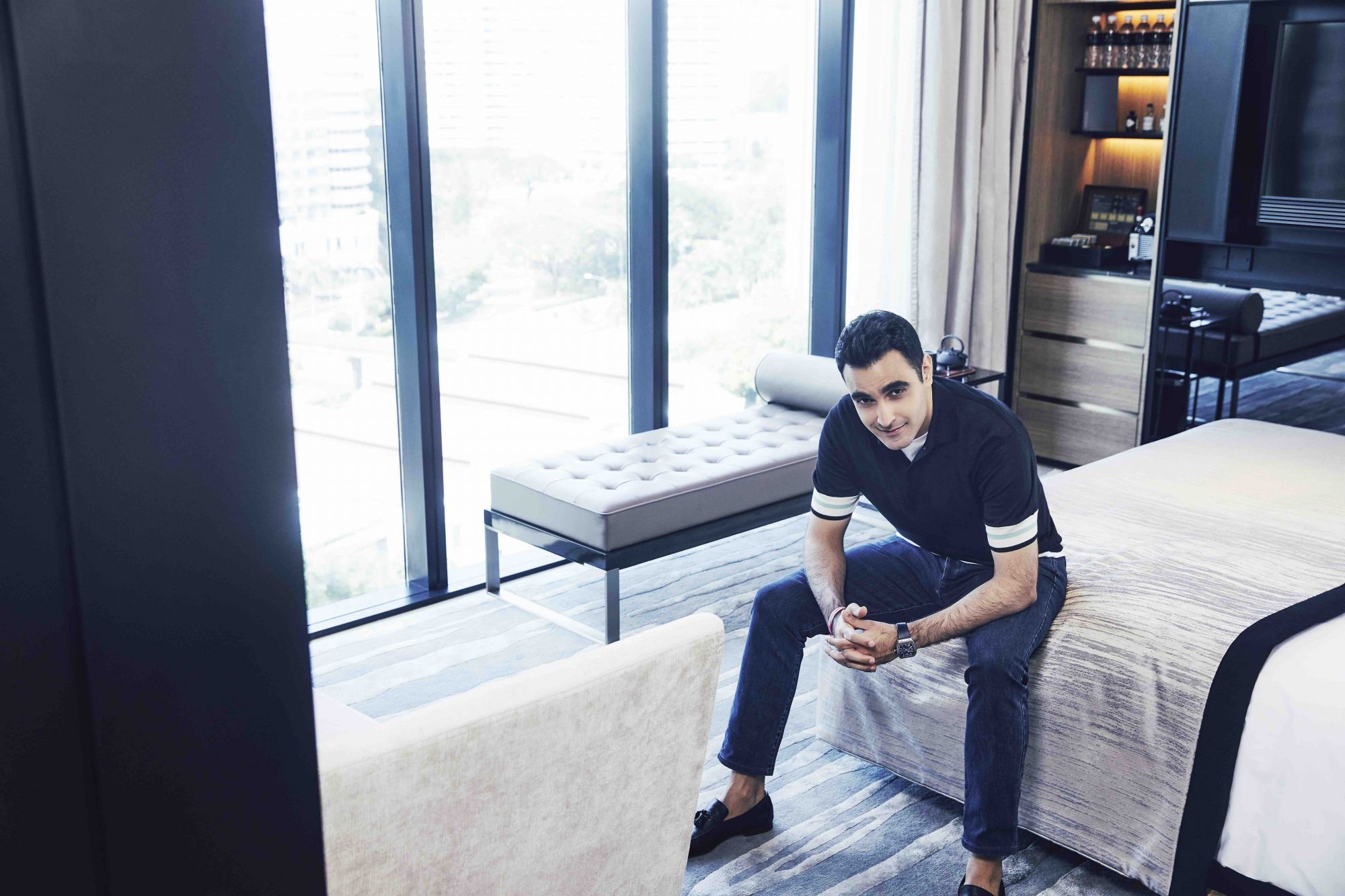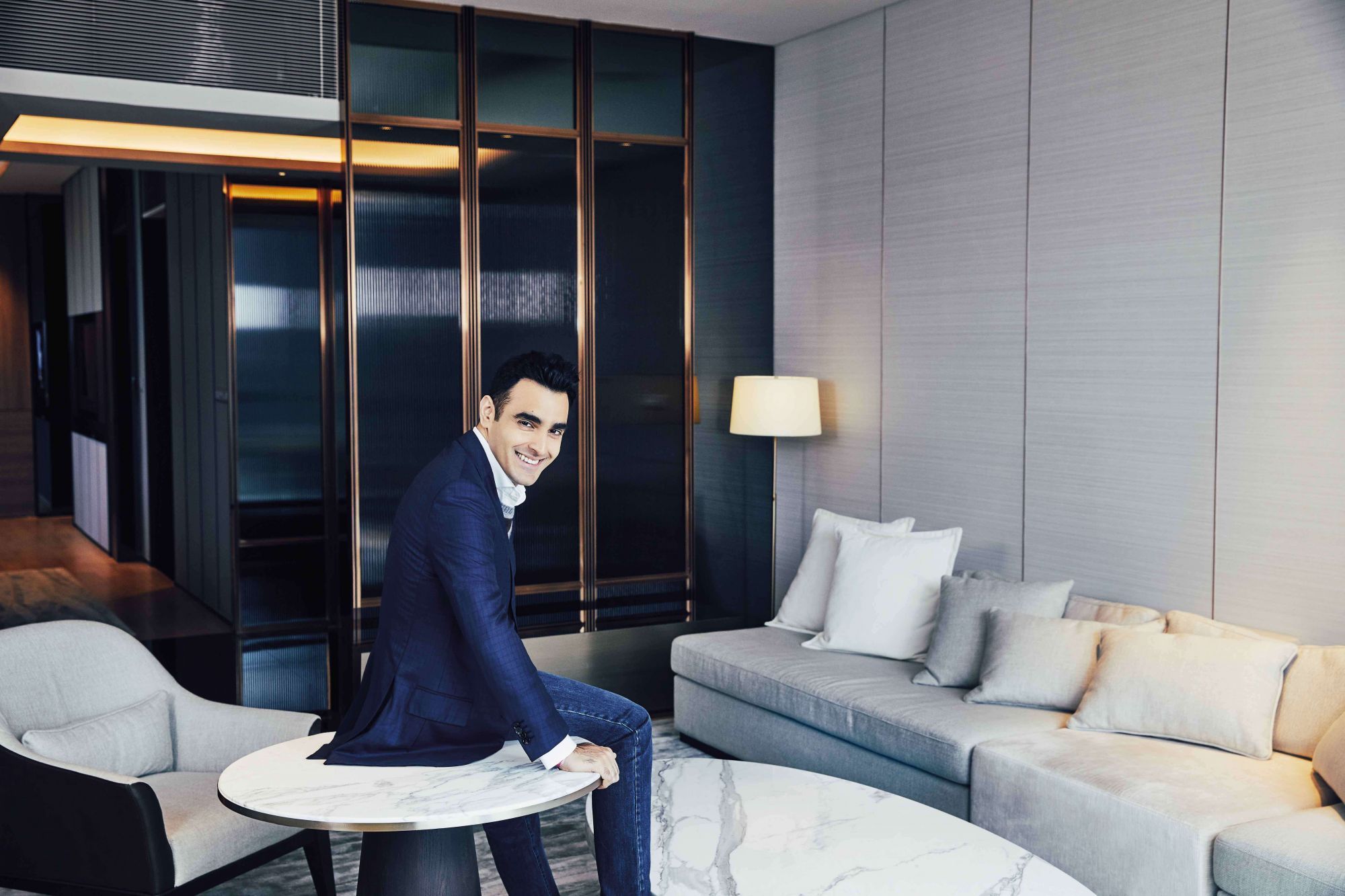The 36-year-old RB Capital founder and only son of Raj Kumar tells Tatler Singapore how buying his first apartment at age 12 changed his life
The Singapore Tatler team meets Kishin RK on a weekday morning at InterContinental Singapore Robertson Quay, and one of the first things he does as we settle in for this interview is to lower the window shade to temper the glare of the sunlight streaming in through the windows of the conference room we are in. “I only had two hours’ sleep last night,” he tells us.
He orders a coffee, but actually, caffeine is no match for talking shop when it comes to invigorating the founder and CEO of property developer RB Capital. Once he starts laying out his plans for 2019 and beyond, it’s easy to understand why there may just not be enough hours in the day for everything he wants to accomplish.
The action-packed years that lay ahead come on the heels of a relatively quiet period of reflection—a characteristically strategic move for Kishin, who’s proven to be a shrewd player in the real estate landscape since he started his company in 2006.
See also: We Meet Binod Chaudhary, Nepal’s Only Billionaire
“We made a conscious effort to not do anything in 2018, even though there were many opportunities,” he explains. “First, with the global uncertainty, it was good to take a year to assess where things are going. Most importantly, we wanted to plan how to position the group’s next phase of growth.”

We are going to develop physical spaces that cater to the way human behaviour is changing because of the digital economy. We believe the conventional landlord-tenant relationship will move into a landlord-data relationship, which will result in a different way of viewing income for real estate,” Kishin announces.
More details will soon be announced. Rapid change has become the defining tenor of contemporary life, and he’s keenly attuned to the necessity of always staying a few crucial steps ahead. “Being nimble is key in the new economy,’’ he believes. The enthusiasm is infectious. Who needs sleep when waking life is this exciting?




